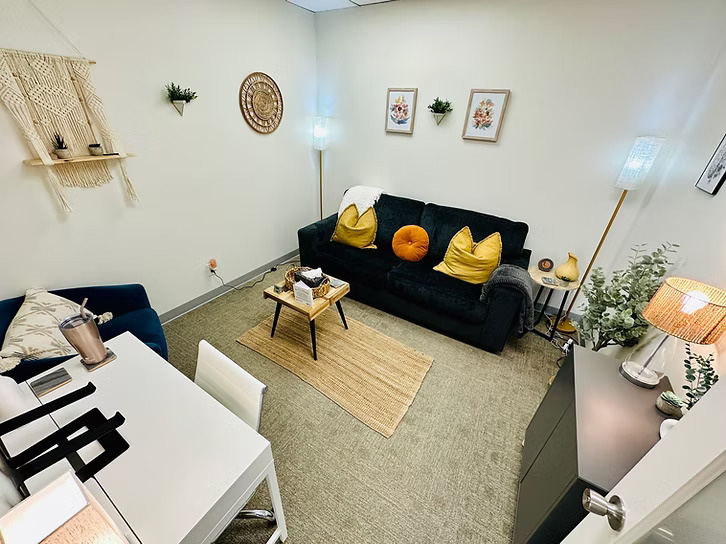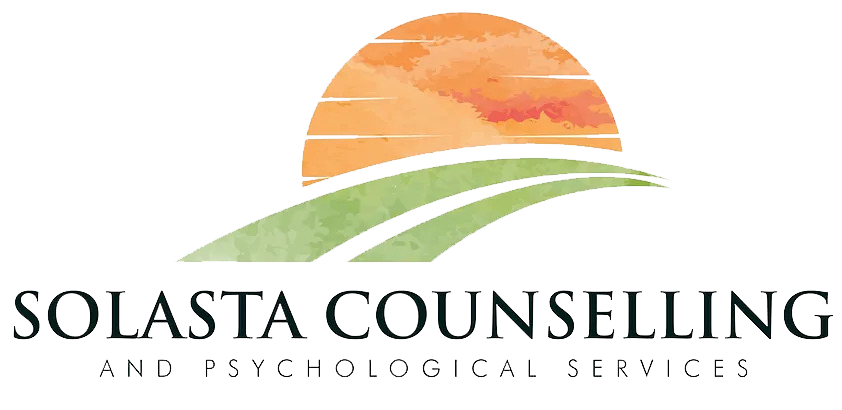Dialectical Behaviour (DBT) Therapy Calgary
We offer DBT Therapy Calgary to help manage intense emotions and improve relationships.

What is Dialectical Behaviour Therapy?
Dialectical Behavior Therapy was developed by Dr. Marsha Linehan to help individuals struggling with emotional regulation and self-destructive behaviours. The term “dialectical” refers to the balance between two opposing forces: acceptance and change. In DBT, individuals learn to accept themselves and their feelings while simultaneously working toward positive changes in behaviour and mindset.
What are the core principles of DBT?
DBT is built on four key components: mindfulness, distress tolerance, emotional regulation, and interpersonal effectiveness. Through these principles, DBT provides tools to help you cope with overwhelming emotions, reduce impulsive behaviours, and build healthier relationships.

How Does DBT Therapy Calgary Work?
DBT involves a combination of individual therapy, group skills training, phone coaching, and consultation teams to provide comprehensive support.

The therapy is structured to teach clients specific skills in a systematic, step-by-step approach. Over time, clients learn to apply these skills to everyday challenges, improving their emotional regulation, interpersonal relationships, and overall quality of life.
The therapy is divided into several stages, each focusing on different aspects of emotional well-being:
Stage 1: Stabilization and Symptom Reduction
In this stage, DBT helps clients learn to manage the most urgent and disruptive symptoms. This might include addressing self-harm behaviours, suicidal thoughts, or emotional instability.
“What if I have trouble controlling my emotions?”
DBT provides strategies to help you regain control over overwhelming emotions and begin to build a foundation for recovery.
Stage 2: Emotional Processing and Trauma
In this stage, clients work on processing unresolved trauma, negative emotions, and difficult memories.
“Can DBT help with past trauma?”
Yes, DBT can help you address past experiences that contribute to emotional pain and create strategies for emotional regulation and healing.
Stage 3: Building a Life Worth Living
Once stabilization and emotional processing have occurred, DBT focuses on improving quality of life, increasing self-esteem, and building a meaningful, fulfilling life.
“How can DBT help me create a better future?”
In this phase, DBT helps individuals set and achieve personal goals, improve interpersonal skills, and strengthen their ability to manage day-to-day challenges.
Stage 4: Promoting Ongoing Growth
The final stage of DBT focuses on continued growth, allowing individuals to navigate life’s challenges with the skills they have developed.
“What happens after completing DBT?”
DBT encourages ongoing self-improvement and resilience, empowering clients to maintain progress and adapt to new challenges that may arise.
Core DBT Skills
DBT focuses on teaching four core skills to help individuals manage their emotions, relationships, and behaviours more effectively:

Mindfulness
Mindfulness is the practice of being fully present in the moment, without judgement.
“What does mindfulness have to do with DBT?”
Mindfulness helps individuals become more aware of their thoughts, emotions, and bodily sensations, which allows them to respond to situations with greater clarity and calm. It’s a foundational skill in DBT that improves overall self-awareness and emotional regulation.
Distress Tolerance
Distress tolerance skills are designed to help individuals tolerate emotional pain and discomfort without resorting to harmful behaviours.
“How can I manage stress and emotional pain in a healthy way?”
DBT teaches you how to cope with crises, such as anxiety or anger, without escalating the situation or engaging in self-destructive behaviours like self-harm or substance use.
Emotional Regulation
Emotional regulation skills help individuals identify and manage intense emotions, reducing the likelihood of impulsive reactions or emotional outbursts.
“How can I stop overreacting to my emotions?”
DBT teaches strategies for recognizing, labeling, and managing emotions in healthy ways, allowing individuals to feel more in control of their emotional experiences.
Interpersonal Effectiveness
Interpersonal effectiveness skills help individuals improve communication, assertiveness, and relationships.
“How can DBT help me with my relationships?”
DBT teaches strategies for expressing needs and setting boundaries while maintaining healthy, positive relationships with others.
Who Can Benefit from DBT Therapy Calgary?
DBT is highly effective for individuals facing challenges with managing intense emotions or navigating emotional ups and downs.

It is often recommended for those struggling with self-harm, suicidal thoughts, or chronic feelings of emptiness. This therapy is also beneficial for individuals with conditions such as borderline personality disorder, eating disorders, or PTSD.
DBT helps build skills for emotional regulation, interpersonal effectiveness, and distress tolerance. It is commonly used to treat:
Borderline Personality Disorder (BPD)
DBT was originally developed to treat BPD, which is characterized by emotional instability, impulsive behaviours, and difficulties in relationships.
“Can DBT help me with BPD?”
Yes, DBT is the gold standard treatment for BPD, helping individuals reduce self-destructive behaviours, improve emotional regulation, and develop healthier relationships.
Depression and Anxiety
People struggling with depression and anxiety often experience negative thought patterns, overwhelming emotions, and difficulty coping with stress.
“Can DBT help with depression or anxiety?”
Yes, DBT helps individuals address the underlying emotional patterns that contribute to depression and anxiety, teaching skills for managing emotions and reducing negative thinking.
Self-Harm and Suicidal Behaviour
DBT is particularly effective for individuals who engage in self-harm or have suicidal thoughts.
“How does DBT help with self-harm?”
DBT provides strategies for managing distress and urges for self-harm, teaching individuals healthier coping mechanisms to deal with emotional pain.
Eating Disorders
DBT is also effective in treating eating disorders, including binge eating and bulimia.
“Can DBT help me with my eating disorder?”
Yes, DBT helps individuals regulate emotions and develop healthier ways of coping with negative feelings that may contribute to disordered eating behaviours.
Trauma and PTSD
Individuals who have experienced trauma or are living with post-traumatic stress disorder (PTSD) can benefit from DBT’s emphasis on emotional regulation and trauma processing.
“How can DBT help with PTSD?”
DBT helps individuals process the emotions and memories related to trauma, while also teaching coping skills to manage emotional distress.
Substance Use and Addiction
DBT can help individuals struggling with addiction by addressing the emotional factors that drive substance use and teaching healthy coping mechanisms.
“Can DBT help me overcome my addiction?”
Yes, DBT provides tools to manage emotional triggers and reduce impulsive behaviour associated with substance use.
Relationship Problems
DBT can also help individuals and couples improve their communication and conflict resolution skills.
“Can DBT improve my relationships?”
Yes, DBT teaches individuals how to set boundaries, communicate assertively, and maintain healthy relationships even in the face of conflict.
Why Choose Solasta Counselling for DBT in Calgary?
We offer DBT with the support of trained and experienced Calgary therapists who specialize in helping clients develop essential emotional regulation and coping skills. We understand that emotional struggles can be overwhelming, and we’re here to provide a supportive, non-judgemental environment to help you navigate your challenges and build a more stable, fulfilling life.
How Do I Know if Dbt is Right for Me?
DBT is ideal if you find it challenging to regulate your emotions, have difficulty managing relationships, or engage in self-destructive behaviours.
If you are struggling with intense emotions or unresolved trauma, DBT can help you develop practical skills to improve your emotional well-being.
Our team is committed to your healing and growth. We provide tailored DBT therapy that focuses on your unique needs, helping you build the skills you need to thrive.


Take the Next Step Toward Emotional Balance
DBT at Solasta Counselling in Calgary provides the tools and support you need to regain control over your emotions and improve your relationships.
Calgary Counselling and Psychology Services
Our Calgary psychologists have a wide range of experience and expertise in understanding the unique needs of our clients and helping you reach your therapy goals.
CAP
All of our psychologists are registered with the College of Alberta Psychologist.
PAA
Many of our psychologists are members of the Psychology Association of Alberta.
CCPA
Many of our psychologists are members of the Canadian Counselling and Psychotherapy Association.
Therapists Specializing in DBT Therapy

Only

Only

Only

Only

Only
We’re Located in Calgary, Alberta
We provide counselling and psychological services in-person in Calgary and online counselling throughout Alberta.
Suite 200, 1716 16 Ave NW, Calgary AB
*free parking behind the building
Our Calgary Office Space
Our thoughtfully designed counselling spaces are crafted to create a warm, welcoming environment where you can feel completely at ease.







Get Started With Solasta in Three Easy Steps
Find Your Therapist
Book Online
Choose a date and time that fits your schedule and receive instant confirmation of your appointment.
In-person or Online
Visit our welcoming Calgary office or meet with your therapist online from the comfort of your home.
FAQs
What types of therapy do you offer at Solasta Counselling?
At Solasta Counselling, we offer a wide range of evidence-based therapies tailored to your individual needs.
These include Cognitive Behavioral Therapy (CBT), Acceptance and Commitment Therapy (ACT), Dialectical Behavior Therapy (DBT), EMDR for trauma, Narrative Therapy, and Gottman Method Couples Therapy.
Each approach is designed to help address specific challenges, whether you’re dealing with anxiety, depression, relationship issues, grief, trauma, or other concerns.
How do I know if therapy is right for me?
Therapy can be helpful if you’re experiencing emotional or psychological challenges that affect your daily life, relationships, or well-being.
Common signs include persistent feelings of sadness or anxiety, difficulty coping with stress, or a desire for personal growth and self-discovery.
If you’re unsure, an initial consultation can help you explore your concerns and determine if therapy is a good fit for you.
What can I expect during my first session?
Your first session at Solasta Counselling will focus on understanding your unique situation and goals.
You’ll discuss your current challenges, personal history, and what you hope to achieve in therapy.
This session allows your therapist to tailor a treatment plan that suits your needs, while also giving you an opportunity to ask questions and build a comfortable, trusting relationship.
Do you offer virtual or in-person counselling sessions?
Yes, Solasta Counselling offers both virtual and in-person sessions to accommodate your preferences and needs.
Virtual therapy allows you to access support from the comfort of your home, while in-person sessions provide a private, welcoming environment at our Calgary location and throughout Alberta.
Both options ensure the same level of care and confidentiality.
How long does therapy usually take?
The length of therapy varies depending on your goals and the complexity of your concerns.
Some clients see improvement in just a few sessions, while others benefit from longer-term support.
Your therapist will work with you to set realistic expectations and adjust your treatment plan as you progress.
Is therapy confidential?
Yes, all sessions at Solasta Counselling are confidential.
We follow strict professional and legal guidelines to protect your privacy.
The only exceptions involve safety concerns, such as risks of harm to yourself or others, which your therapist will explain during your initial session.
